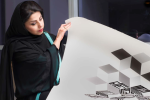Over 500 Arab women participated in the first ever Arab Women Leadership Forum, held in The United Arab Emirates last Tuesday. The two-day event focused on the status of women in the Arab world, and discussed ways of increasing their social, economic and political contributions. Themed, ‘Women and Leadership: Global Trends and Local Innovations’, the forum discussed the status of women in Arab countries, focusing on ways to reduce the gender gap in the workforce. A series of panel discussions and workshops made it possible for Arab women still in school–or perhaps just beginning their career–to interact with leading personalities and industry veterans. It’s important for women to come together as a collective and celebrate their achievements in male-dominated societies because it shows that success is possible, even in places where tradition and religion are often seen as a hindrance to economic progress.
Sheikha Fatima bint Mubarak, the wife of the ruling Sheikh Zayed bin Sultan Al Nahyan, and the chairwoman of the Arab Women’s Organization, gave the keynote address, giving a shout out to Palestinian women, saying their struggle gives Arab women pride. According to the Khaleej Times, Sheikha Fatima is responsible for the ambitious goals of the program. She’s heralded as a women’s rights crusader and is credited with pressuring her husband, er, the government, to increase the number of Emirati women in the public and private sectors.
Without diminishing her contributions, I find the whole U.A.E. brownnosing a little annoying. While it is true that the U.A.E. is an Arab country that has made significant strides towards female liberties, it is not as progressive as her Highness bint Mubarak often makes it out to be. When more than 80% of the country is expatriates, it’s misleading to say that Emirati women make up 60% of the workplace or 66% of the governmental force, because it implies that Arab women are indeed economically independent. The fact is, it is still rather taboo for Arab women to work alongside men, and these numbers more accurately represent the working number of South and Southeast Asian women in the country. The number of Emirati women in the workforce is about 15%, so there is a lot of progress to be made. Just looking at the lack of Emirati women speaking at the conference is testament to that. Still, the country remains the most progressive in the Gulf region, and that gives Mrs. Mubarek bragging rights.
Ultimately, programs like this serve as a national and regional boost for women because they showcase their ability to organize and discuss important issues. Kudos to the U.A.E. government for sponsoring this. In doing so, it shows it cares about the contributions of women to the economy, and supports their future role as leaders in Arab society. It would be smart to host this forum in different Arab countries every year, making it more accessiblefor women around the Arab world. This would live up to the program’s mission that it is not only interested in the progress of women in the U.A.E., but all accross the Arab world.


